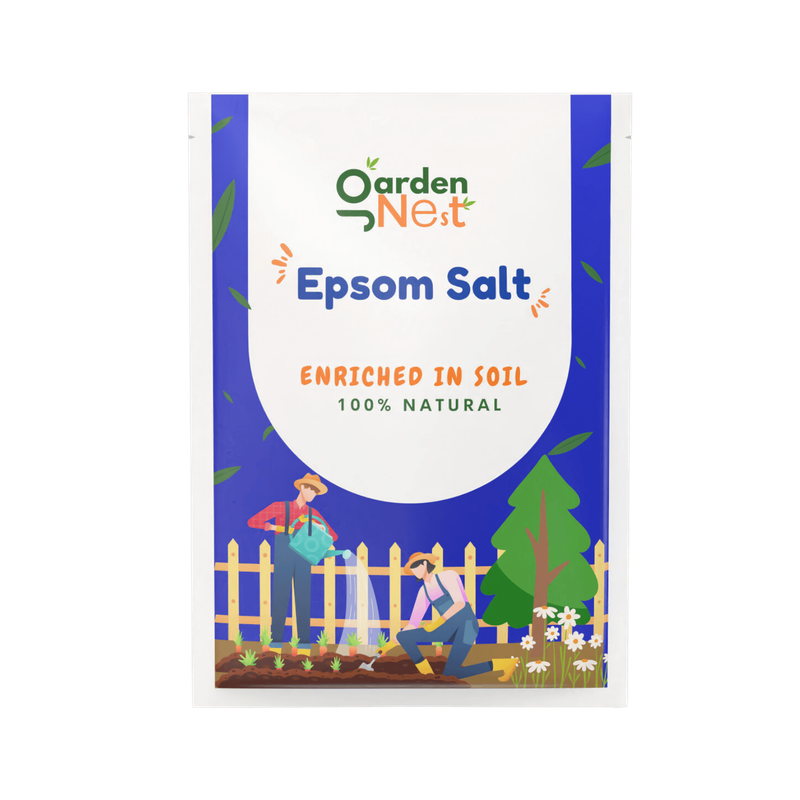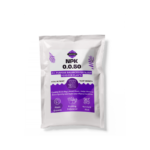How to Use Epsom Salt in Your Garden: A Complete Guide
Have you ever wondered if there’s a simple, affordable way to boost your garden’s health without harsh chemicals? The answer might be in your bathroom cabinet—Epsom salt. Known chemically as magnesium sulfate, Epsom salt is increasingly popular in gardening for its ability to improve plant health and vitality. This natural compound is especially effective as an Epsom salt fertilizer for a wide variety of plants, from vegetables to ornamentals. When used as agricultural Epsom salt, it delivers essential magnesium and sulfur that support chlorophyll production and nutrient uptake. Whether you’re applying Epsom salt for garden plants, enriching garden soil, or targeting specific blooms like gardenias or roses, this mineral supplement can work wonders. Gardeners often swear by Epsom salt fertilizer for roses, citing more vibrant blooms and healthier foliage. Likewise, using Epsom salt for gardenia can help prevent yellowing leaves due to magnesium deficiency. In this guide, “Epsom Salt: Small Crystals, Big Impact,” you’ll discover how to harness the full potential of Epsom salt in your garden and why it remains a trusted tool for plant nutrition..
Benefits of Epsom Salt for Your Garden
-
Boosts Plant Growth: Using Epsom salt fertilizer helps provide magnesium and sulfur, two essential nutrients that support photosynthesis and overall plant development.
-
Enhances Flowering and Fruit Production: Many gardeners rely on Epsom salt fertilizer for roses and Epsom salt for gardenia to promote vibrant blooms and stronger flowers.
-
Improves Vegetable Yields: Applying Epsom salt for garden vegetables can improve nutrient uptake, resulting in healthier and more productive plants.
-
Strengthens Grass and Lawn Health: Epsom salt fertilizer for grass is an easy way to green up your lawn and boost its resistance to disease and drought.
-
Balances Soil Nutrients: Using Epsom salt for garden soil can correct magnesium deficiencies, which are common in many types of soil, leading to healthier roots and better nutrient absorption.
-
Widely Used in Agriculture: Also known as agricultural Epsom salt, it is employed on a larger scale to improve crop quality and soil conditions.
| S.No. | Keyword | Search Intent | Use Case / Focus |
|---|---|---|---|
| 1 | Epsom Salt for Plants | Informational | General benefits of Epsom salt for plant health. |
| 2 | Epsom Salt Fertilizer | Informational / Product-Related | Using Epsom salt as a fertilizer supplement. |
| 3 | Epsom Salt for Garden | Broad / Gardening Use | Application of Epsom salt in overall garden care. |
| 4 | Magnesium Sulphate for Plants | Technical / Educational | Scientific term; nutrient source for plants. |
| 5 | Agricultural Epsom Salt | Commercial / Farming Use | Large-scale or farm-focused applications. |
| 6 | Epsom Salt for Gardenia | Niche / Plant-Specific | Specific use for gardenia plants. |
| 7 | Epsom Salt for Garden Vegetable | Gardening / Edible Plants | Improving growth of vegetables with Epsom salt. |
| 8 | Epsom Salt for Garden Soil | Soil Health | Using Epsom salt to balance or enrich soil. |
| 9 | Epsom Salt Fertilizer for Grass | Lawn Care | Promoting lush green grass using Epsom salt. |
| 10 | Epsom Salt Fertilizer for Roses | Flower Gardening | Boosting rose blooms and health. |








